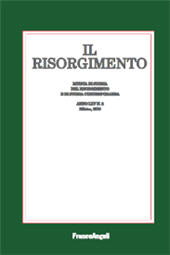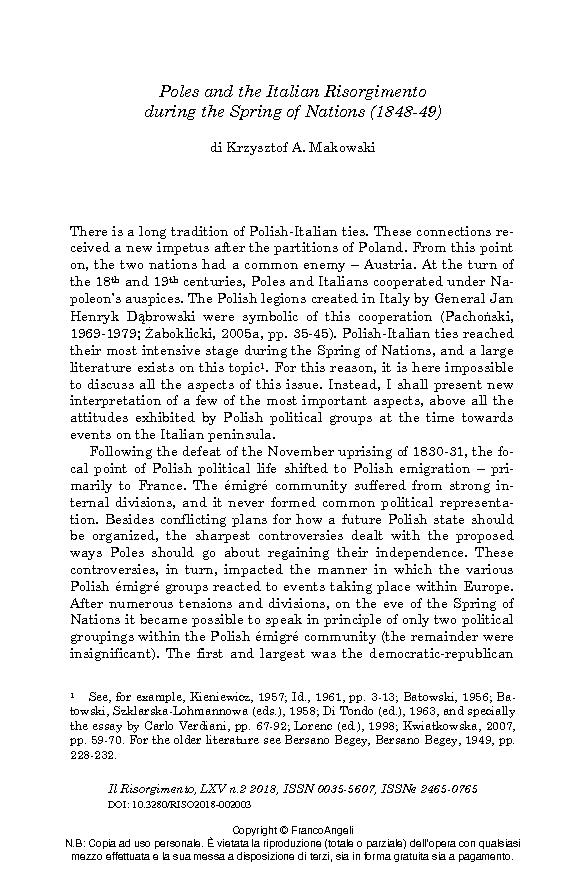Poles and the Italian Risorgimento during the Spring of Nations (1848-49)
89-100 p.
The Poles started to pay particular attention to events on the Italian peninsula at the beginning of 1848. The man, who during the Spring of Nations continually expressed interest in Italian affairs, was the Polish national bard, Adam Mickiewicz. Anticipating a war with Austria, he wanted to create a Polish legion under its own flag, a legion that would also attract the other Austrian Slavs. The Polish conservative camp of prince Adam Jerzy Czartoryski also got involved in Italian affairs. He developed his activity in Sardinia and Lombardy. When assessing the military contribution of Poles to the fighting on the Italian peninsula, one should emphasize that the Poles were present on all fronts. However, after the defeat, a significant segment of Italian public opinion blamed the Polish generals Wojciech Chrzanowski and Ludwik Mierosławski for the defeat. The events of the Spring of Nations generally changed the view of the Poles.
At this point a negative stereotype of Poles began to form. Conservatives and liberals both viewed Polish emigrants negatively, seeing in them the carriers of revolutionary ideas and the destroyers of order. [Publisher's text].
I polacchi hanno iniziato a prestare una particolare attenzione agli eventi della penisola italiana all'inizio del 1848. Colui che durante la Primavera delle Nazioni aveva più frequentemente espresso interesse per gli affari italiani, era lo "scrittore nazionale" polacco, Adam Mickiewicz. Anticipando la guerra all'Austria, egli voleva creare una legione polacca che avrebbe coinvolto anche gli altri slavi sudditi austriaci. Le stesse frange conservatrici polacche del principe Adam Jerzy Czartoryski furono coinvolte negli affari italiani. Egli diede seguito alla sua attività in Sardegna e in Lombardia. Nel valutare il contributo militare dei polacchi nei combattimenti in Italia, si dovrebbe sottolineare il fatto che i polacchi erano presenti su tutti i fronti. Tuttavia, dopo la sconfitta, un significativo segmento dell'opinione pubblica italiana accusò i generali polacchi Wojciech Chrzanowski e Ludwik Mierosławski della sconfitta.
Gli eventi della Primavera delle Nazioni hanno cambiato l'immagine dei polacchi in generale. Si costruì così uno stereotipo negativo dei polacchi. I conservatori e i liberali avevano una scarsa opinione degli emigranti polacchi, poiché vedevano in essi i portatori di idee rivoluzionarie e distruttrici dell'ordine. [Testo dell'editore].
Ist Teil von
Risorgimento : rivista di storia del Risorgimento e di Storia Contemporanea : LXV, 2, 2018-
Artikel aus derselben Ausgabe (einzeln erhältlich)
-
Informationen
ISSN: 2465-0765
THEMENBEREICHE
KEYWORDS
- Primavera delle Nazioni (1848-49), Grande emigrazione polacca, relazioni italo-polacche
- Spring of Nations (1848-49), the Polish Great Emigration, Polish-Italian relations



